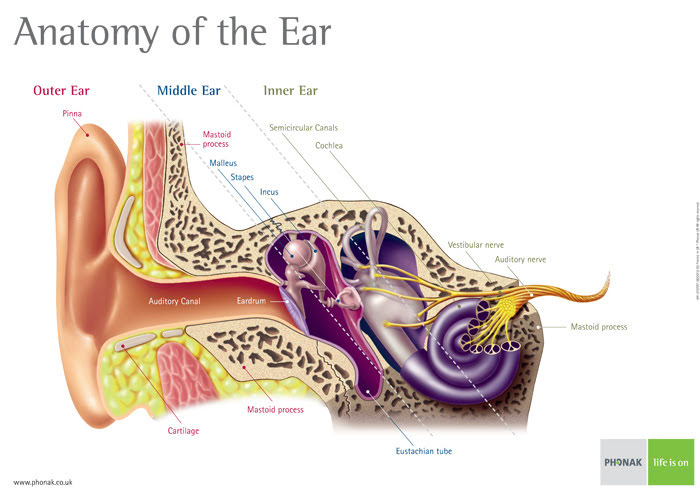Hearing loss and cardiovascular disorders.
We have long known that hearing loss is linked to or often accompanies other health conditions. For instance, diabetes is a co-morbidity (comorbidity is the presence of one or more additional diseases or disorders co-occurring with a primary disease or disorder) of hearing loss, as are cardiovascular disorders. A study in 2017 caught my attention, it was a large scale study and it found that low-frequency hearing loss, in particular, was associated with underlying cardiovascular issues . In essence, if you have problems with your heart, you are more likely to have problems with your hearing. Let's talk about why, and what the studies have said in relation to the matter.
The heart and hearing connection
Your cochlea (inner ears) need a good supply of oxygen-rich blood, the Cilla (the famous hair cells) in the cochlea are very fragile nerve endings. Like all nerve endings, if they are starved of a decent oxygen-rich blood supply, they become damaged. Poor cardiovascular health causes problems with the blood flow, and blood vessel trauma to the inner ear. It appears that our inner ears are so sensitive to blood flow problems, that hearing loss in particular at the lower frequencies of hearing may be an early warning sign of cardiovascular disease.

Large Study
The Study involved a total of 5107 participants born within the years 1946-1964 who were enrolled in the Busselton Healthy Ageing Study. Their hearing was assessed behaviourally through the best ear pure-tone average (500, 1000, 2000, 4000 Hz), low-frequency average (250, 500, 1000 Hz) and high-frequency average (4000, 8000 Hz).
Self-reported hearing loss, tinnitus and hyperacusis were assessed via questionnaire. Cardiovascular risk factors were assessed via a patient-completed questionnaire and objective measurements including blood pressure, body mass index, waist circumference, lipid profile and glycated haemoglobin.
The Findings
The study found that obesity, current smoking, peripheral arterial disease and history of cardiovascular disease were significantly associated with pure-tone, low-frequency and high-frequency hearing loss. Furthermore, high blood pressure, triglyceride and glycated haemoglobin were significantly associated with low-frequency hearing loss. This study has findings in line with earlier studies with smaller groups of people.
Heart Fit, Hearing Fit?
Another study undertaken in Brigham and Women’s Hospital confirms the link and showed that a higher level of fitness in women seemed to be linked with a lower level of hearing loss. The study was published online in The American Journal of Medicine and its findings stated that a higher level of physical activity is associated with a lower risk of hearing loss in women.
Conversely, the study found that a higher body mass index (BMI) and larger waist circumference are each associated with higher risk of hearing loss. This study, along with many others provide us with significant evidence that bad cardiovascular health damages our hearing. I think it begs the question, will keeping fit protect your hearing? It would also make me wonder, would getting fit and improving cardiovascular health have any impact on an existing hearing loss?
The Conclusions: People with cardiovascular problems may be more prone to hearing loss. There seems to be an association between low-frequency hearing loss and numerous cardiovascular events.
There is a huge amount of proof in relation to bad heart health and damage to hearing. It also appears to be the case that the fitter you are as an older adult, the better your hearing is. This evidence may well lead to a better understanding of hearing loss and perhaps even the discovery of different treatments.
Active People, Hear Better?
However, what it tells us right now is that the fitter you are as an older adult, the better it is for you. that isn't exactly news, but knowing that the thirty-minute walk you should be taking every day might also help you to hear better for longer, might just be the encouragement you need to get off the couch.
If you like what you see, share it so others can benefit
Posted by Geoff

Geoffrey Cooling





Geoffrey (Geoff, anything else makes him nervous) Cooling is an Irish hearing aid blogger and has been involved with the hearing aid industry for over ten years. He has worked in private practice dispensing hearing aids and as a manufacturer's rep. He has written two books and they are both available on Amazon. He loves technology, passing on knowledge and is legendary for many other things, primarily the amount he curses, his dry and mischievous sense of humour and his complete intolerance of people who are full of themselves. Please feel free to connect with him
Looking For the Latest Hearing Aids or A Hearing Test?
Arrange a consultation with a trusted Independent hearing healthcare professional in your area




